Stories from 30 years of PlayStation
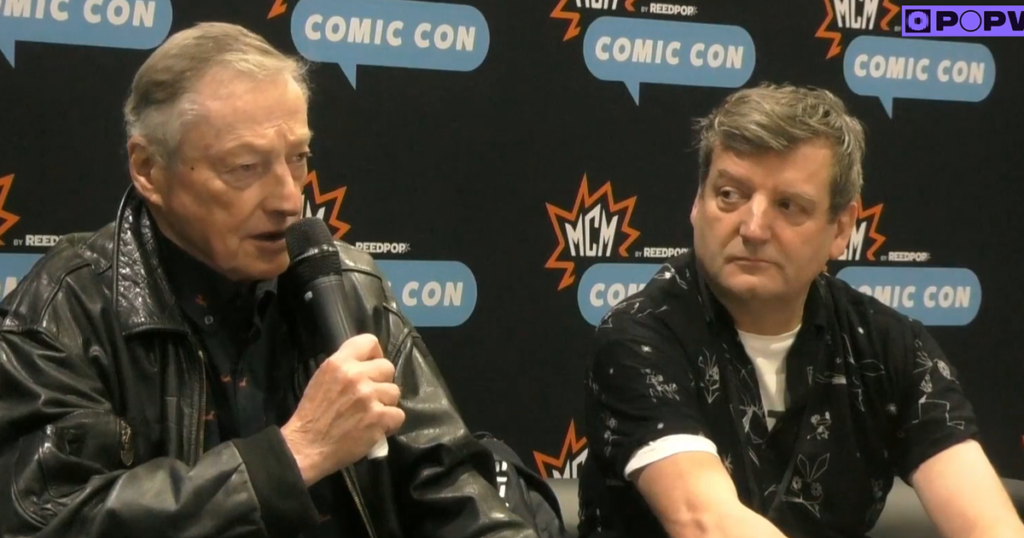
During EGX in London, PlayStation veterans Chris Deering, David Wilson, Geoff Glendenning, David Ranyard and Masami Kochi took to the stage to share stories from the history of PlayStation.
I hosted the special session and there were some fascinating little insights into working on PS1, PS2, PS3 and PS4. To mark the 30th anniversary of the PlayStation brand, here are some of the key anecdotes from that very session.
Sony Europe’s target was to sell just 3m PS1s in three years
“I had worked in the industry way before PlayStation at Atari in the mid-80s,” began Chris Deering, who ran the PlayStation European business up until the launch of PS3.
“Since that time, Nintendo and Sega were the dominant factions on console. I was happy to get involved with Sony’s entry because I thought it would legitimatise console gaming in some countries where it was seen as very downmarket, or even criminal like the arcades down by the train station.
“I knew that the Sony name would legitimise the concept. But what excited me the most was the disc, which would allow us to get games that were selling fast into store a lot faster than eight weeks, which was the time it would take to order new discs from Japan.
“So I was optimistic, but not too optimistic to think it wasn’t going to be a fight. What we set out to sell in the first three years of the European division was three million units and 14 million games. It ended up being ten million units and 40 million games. We were very conservative in setting the objectives, but we had the ability to scale up. Then we had a lot of fun with the marketing, and developers coming in with new games and super better looking versions of old games, and that all helped to make the phenomenon happen. And it’s been here ever since.”
“I was optimistic about PS2, but not too optimistic to think it wasn’t going to be a fight.”Chris Deering
PlayStation UK gave away loads of PS1s to ‘cool’ people
The UK PlayStation team was determined to make this new console a desirable, cool product for adults. And to do so, it tapped into the club and rave scene of the mid 1990s.
“There was this revolution in youth culture at the time,” revealed former UK marketing boss Geoff Glendenning. “So we positioned PlayStation in the UK to an 18 to 30-year old market. We made the brand edgy. We made it cool. We didn’t pay for any endorsement. We gave hundreds upon hundreds of PlayStations away to very cool people. I didn’t say they had to talk about it. There was no social media then. It was truly word of mouth. And that word of mouth was a spark that spread amongst youth tribes and friendships groups. It was very underground.
“I knew that giving a PlayStation to a top DJ that they’d love it. And they’re cool amongst their friends, they’d have their friends round, they’d play it, and they’d effectively become an ambassador for it. We created an army of ambassadors. It wasn’t a cool brand because the advertising was cool, it was cool because the movers and shakers and influencers of youth culture were out there saying that Sony really knew it stuff. I employed culturally connected people, who worked in music and fashion and taught them marketing. Because you can’t teach a corporate marketer youth culture.
“It wasn’t just club culture. It was also snowboarding, skateboarding, surfing, graffiti, hip hop, breakdancing… we were in the underground, supporting culture. I wasn’t interested in football or F1.”
The Crash Bandicoot marketing campaign saw a man attacked by pimps
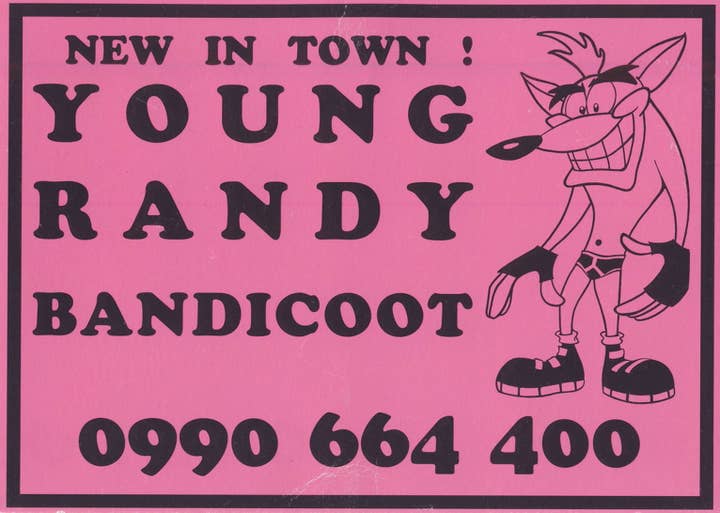
PlayStation’s slightly unorthodox approach to marketing extended to the launch campaign of Crash Bandicoot saw them create fake Bandicoot road signs and lost pet posters. But one slightly edgier idea may have resulted in a real life assault.
“We had slightly controversial postcards that went into phone boxes in Soho,” Glendenning remembered. “It’s where you’d get a lot of postcards featuring… well, ladies who wanted to date people. The guy who was putting these [Bandicoot postcards] up in the phone boxes… well, we found out that all the pimps owned these phone boxes. It was their phone box. We only found out when the guy who was putting those postcards out got beaten up. Which was a shame. Lesson learned.”
Recollections over whether the assault actually took place, or whether it merely nearly took place, differed amongst the panellists. Either way, they didn’t repeat the idea again.
Chris Deering beat Richard Branson at Tekken
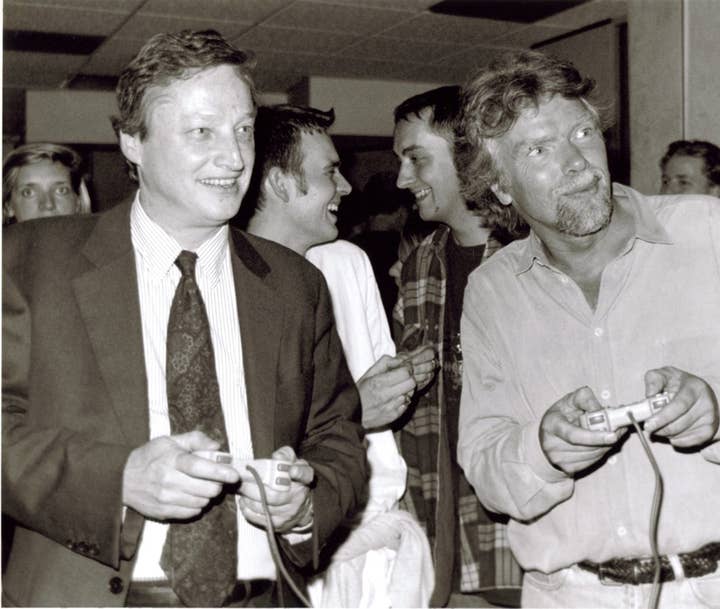
PlayStation rooms featuring consoles connected to the TVs cropped up in all sorts of places, including clubs and retailers. It also featured during the relaunch of Virgin Megastores in London.
“We created a room full of PlayStations and TVs,” Glendenning remembered. “And I just went up to [Virgin boss] Richard Branson and said, ‘Hey, would you like to play PlayStation’. And that picture is of [Richard and Chris Deering] playing Tekken against each other.”
Deering quips: “And I won, thankfully. It would have been embarrassing if I didn’t.”
Rayman was the best-selling game on PS1 in the UK
What was the best-selling game on PS1 in the UK? Tomb Raider perhaps? Gran Turismo?
Nope. It was the original Rayman. The game found its way to the summit due to various bundles and pricing activity. Here’s the full Top Ten courtesy of Nielsen.
UK Best-Selling PS1 Games (Nielsen)
| Position | Title |
| 1 | Rayman (Ubisoft) |
| 2 | Gran Turismo (Sony) |
| 3 | Tomb Raider 2 (Eidos) |
| 4 | Driver (Atari) |
| 5 | Tomb Raider (Eidos) |
| 6 | Gran Turismo 2 (Sony) |
| 7 | Colin Mcrae Rally (Codemasters) |
| 8 | Crash Bandicoot (Sony) |
| 9 | Harry Potter and the Philosopher’s Stone (EA) |
| 10 | Who Wants To Be A Millionaire (Eidos) |
The trade media were sceptical about PS2 ahead of launch
PS2 would go on to become the most successful games console of all time. But the trade media at the time was somewhat sceptical about its chances.
“The popular consensus was that the same platform holder had never maintained dominance over two generations,” recalled former PlayStation UK and European PR leader David Wilson. “There was a lot of naysayers. I remember someone at Sega saying on the front page of one of the trade titles, ‘We’ll kick their asses, they’re running away’. So there was negativity about it. But we felt we had a great product. A great heritage. We didn’t launch with a great line-up. But you could tell by the anticipation that we had something special.”
But the stock shortages, which the panellists insisted was not manufactured, caused a real headache.
“It was tough because there was a special chip in it that was slow to produce. We had supply chain-related issues. The demand was there, but there just wasn’t enough machines,” Deering said.
“It was also financially difficult because the publishers had all made games to come out at a certain time, and they couldn’t work on anything. So the part of the industry that was involved in PlayStation did have a punch to the gut in 2001. But it all passed.”
PlayStation took huge financial risks on EyeToy and SingStar
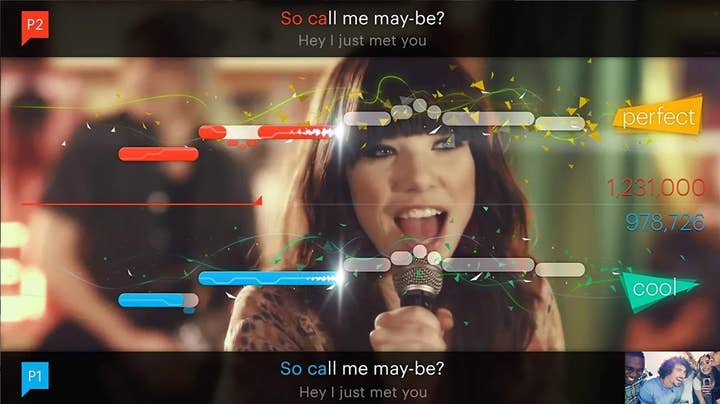
Two of the most innovative and successful products on PS2 came out of Sony’s London Studio: SingStar and EyeToy. And both of them saw PlayStation Europe take a real gamble that they would take off due to the fact both involved expensive to produce hardware.
“The EyeToy team went next door to the corporate headquarters,” said Dave Ranyard, who held numerous roles at London Studio, including studio director.
“The team asked them, ‘We don’t know how many cameras to order, should we order 30,000 or 50,000?’ and Chris [Deering] said: ‘Order 500,000’. It was a big bet, and it paid off.”
Deering observed: “Well, we ended up selling six million.”
“I had Russians having sex on the PlayStation Network”David Wilson
It wasn’t the only time Deering backed the London development team.
“There was another big decision around SingStar,” Ranyard added. “Karaoke was huge in Asia, but it wasn’t so much in Europe. How do you get people who have never sung in front of their friends or a TV to do that? It’s quite a behavioural shift. So the dev team suggested we ship the game with two microphones. Which is double the cost of goods. If you go to any business school, they’d say that was nuts. Ship it with one and sell the other. But we went to Chris Deering, and asked and he said yes. And it worked. It gave people the confidence to play it. They were always with someone else doing this new thing.”
EyeToy caused some X-rated PR headaches
EyeToy did create some unexpended challenges.
“The games were amazing,” Wilson shared. “SingStar and Eyetoy expanded the audience. It was really incredible. But there were a few headaches on the comms side. The ability to broadcast your own content… I had Russians having sex on the PlayStation Network.”
Ranyard laughed: “We had pioneered user-generated content with video… which yes, had some issues. But it was on a par with YouTube at the time with content creator.”
The GTA exclusivity deal was partially a reaction to Xbox
“We were worried when we saw Xbox coming,” Deering remembered. “We knew exclusivity was the name of the game in a lot of fields, like Sky TV with sports. Just as Christmas was approaching when Xbox would launch, a few of us went out to our favourite third-party publishers and developers, and we asked them, ‘How would you like a special deal if you keep your next generation game on PlayStation exclusive for a two-year period?’ And one of the deals we made was with Take-Two for the next three Grand Theft Auto games. At the time, it wasn’t clear that Grand Theft Auto 3 was going to be as huge as it was, because it used to be a top down game.
“It was very lucky for us. And actually lucky for them, because they got a discount on the royalty they paid. Those deals aren’t uncommon in industries with platforms. Including today with things like social media.”
God of War 2 was a challenge for PS3
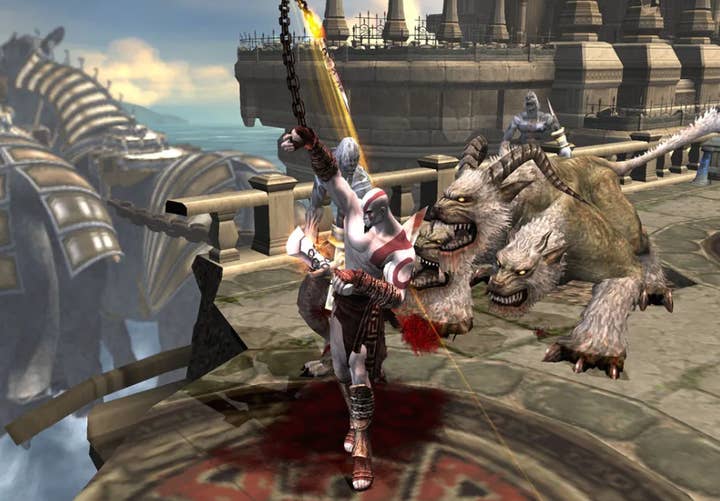
David Wilson said that the PlayStation PR team knew that PS3 was going to be a challenge “straight out of the box.”
“It was our difficult third album. We had a terrible E3. We had a higher price point. We were late to market. It was a challenge.”
And what made matters worse, the PS2 was still going strong with games that were on par with the PS3 launch line-up.
“We were launching God of War 2 on PS2, and it looked amazing,” Wilson lamented. “And I was like, ‘Oh my god, we are trying to push this super expensive machine against our existing machine that had a huge install base and had games that looked this amazing’.”
Yet things improved. “The PS3 was a game of two halves. In the latter half we had some amazing properties.”
“We had built up all this technology around camera tracking thinking we had this whole new market, but we didn’t”David Ranyard
The PS4 was great for developers… except for one
The PS3 was notoriously hard to develop for, while the PS4 was, by comparison, a dream. But when we asked London Studio how they found the PS4, they had one pretty major complaint.
“London Studio used to work on camera games,” Ranyard pointed out. “Even SingStar was considered a camera game as you could use it. And the camera was going to be bundled with the PS4.
“Usually only about 10% of PlayStation players are going to have a camera. And we thought, ‘Wow, this console is going to have a camera in the box’. But then Xbox announced it was going to have Kinect in the box and it became this battle around cameras and price. And the PlayStation Camera was doing this Hokey Cokey, it was in the box, then it was out of the box, then it was in again… but eventually it wasn’t in the box. And we had built up all this technology around camera tracking thinking we had this whole new market, but we didn’t. So it was a bit challenging for us. And that is what led us towards VR.”
The UK PS4 launch happened early to compete with Xbox
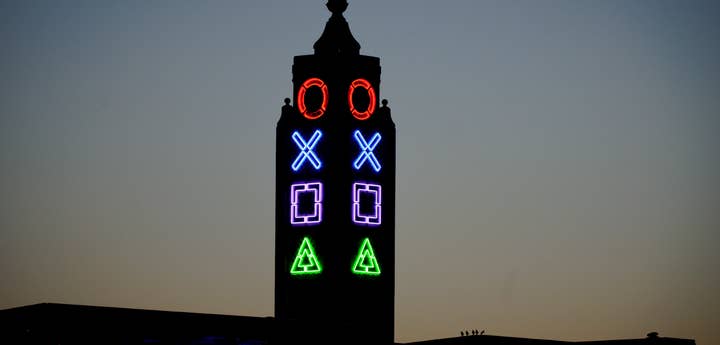
PlayStation was notoriously aggressive against Xbox during the battle between Xbox One and PS4, with the infamous Sony video mocking Xbox’s (eventually scrapped) policy around sharing games.
Xbox was having a tough time and PlayStation was eager to press the advantage. In the UK, PS4 – unlike in the US – was launch after the Xbox One release. The UK team’s response? Throw a launch party early.
“We just went early to get out ahead of Xbox,” Wilson revealed. “We had the OXO tower [PR stunt in London] at the same time, and a massive party on the night of the US launch… so we went a week early to try and get ahead of things.”
Source link : Gamesindustry


